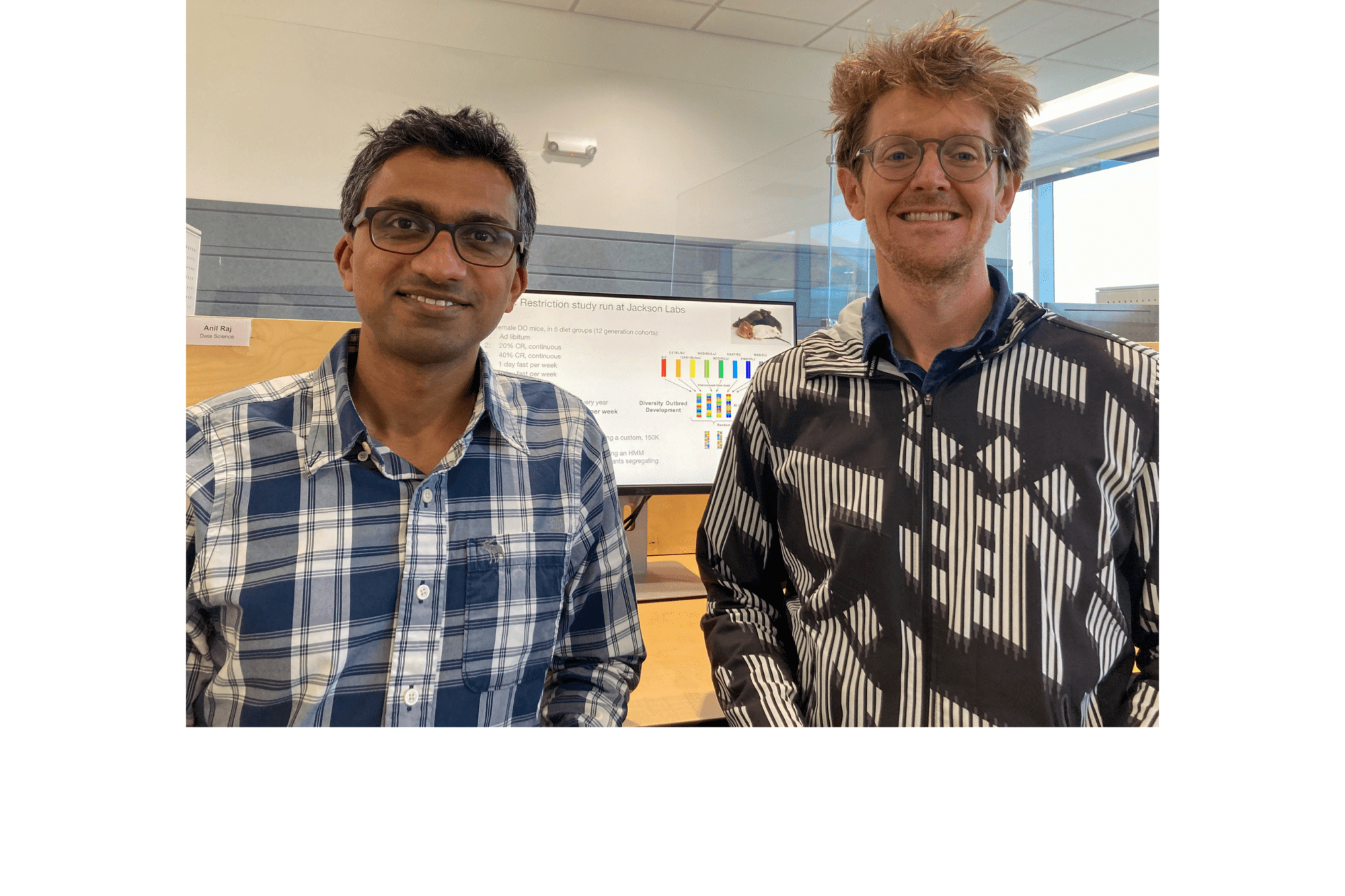Uncovering the complex interaction between genetics and the environment and how these two factors shape lifespan, health and disease in humans could help scientists discover new therapeutic targets that ward off diseases commonly associated with aging. Recent studies published by Calico and some of our research partners bring new insights to the inter-relationship among diet, aging and genetics.
Determining the effects of age, diet and genetics on body weight
Surprisingly, few studies have assessed the impact of genetics on any single trait over time. Together with The Jackson Laboratory, a renowned leader in mammalian genomics, Calico has been studying a population of hundreds of female mice with diverse genetic backgrounds for seven years. Data from this research collaboration was published recently in eLife and highlights some interesting findings about how long-term effects of age, diet and genetics interact to determine variation in body weight.
In this study, the mice were separated into five dietary study groups, allowing data collection across those that had unlimited food access, those who had daily limited caloric intake, and those that had weekly intermittent fasting.
The study found that a mouse’s genetic background explained about 80 percent of the variation in their weights at young age, and that the influence of genetics decreased as they aged. Mice on the 40 percent calorie restriction diet, were an exception to this rule; here, genetics accounted for approximately 80 percent of their weight variation into adulthood. Surprisingly, all genes associated with body weight had age-specific effects and approximately half of the genetic effects were visible in a specific diet.
Together, these results highlight the interconnectivity between environment, genetics and aging and broadly impact how we think about variation in all health-related traits. For example, a single gene could significantly impact a trait when we are young, but have little to no influence in late adulthood. This has implications for identifying therapeutic targets since the influence of genes may change over our lifetime.
“This is one of the first studies where a single trait, body weight, was measured at multiple points during an entire lifespan. These results change our views on genetic impact early in life versus later in life,” said Anil Raj, PhD, principal data scientist at Calico and one of the authors of the paper. “Future studies can utilize similar methods to evaluate other complex traits with a more direct link to healthy aging.”
In the future, measuring these age-specific effects within diverse human groups will be the subject of a rich investigation. This study is one of the first multi-year, multi-institution projects that Calico embarked on seven years ago that is now yielding insights into how environment and genetics together affect aging.
Do Diet and Genetics Affect Physiology and Health Outcomes?
A companion to the eLife study, and another focus of Calico’s collaboration with The Jackson Laboratory, sought to understand how diet and genetic variation affect health traits in mice.
Many studies have shown that dietary interventions can dramatically affect the health of our body’s organs and physiology, and ultimately, our lifespan. The degree to which our whole body’s health is improved has also been shown to depend upon genotype and the quality and severity of dietary intervention. However, neither the effects of these factors, nor their interaction, have been quantified in genetically heterogeneous, outbred, populations with a random assortment of genetics.
Reported earlier this year in Genetics, the team studied the same population of genetically diverse mice subject to caloric restriction or intermittent fasting. When the mice were one year of age, the scientists measured the effects of these dietary interventions on a diverse set of physiological traits including behavior, motor function, body composition and cardiovascular health.
The team found distinct genetic interactions associated with health outcomes in both types of diets. Interestingly, the mice subjected to 40% caloric restriction had the greatest health improvement. The researchers also determined that cardiac morphology and function, and the degree of improvement, is shaped by diet-dependent genetic associations.
Read the full study published in eLife and Genetics.
Explore our other publications here.
